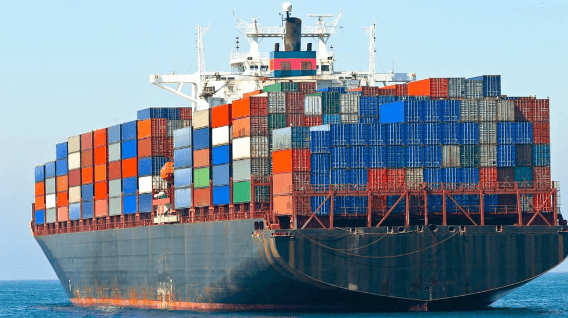The Durability and Security Features of Shipping Containers

Shipping containers are renowned for their strength and versatility, making them indispensable across various industries. From transporting goods across continents to serving as makeshift storage solutions or homes, these steel giants are trusted for their durability and security.
In this post, we’ll explore the critical features that make Shipping Containers a reliable choice for countless applications and why they’re built to last.
High-Quality Steel Construction
The foundation of a shipping container’s durability lies in its construction material. Most containers are made from high-grade Corten steel, also known as weathering steel, which offers exceptional strength and corrosion resistance. This type of steel is designed to form a protective layer of rust when exposed to the elements, preventing further corrosion and extending the container’s lifespan.
Why It Matters: This layer of protection ensures that the container remains rust-free even in harsh environments like oceanic saltwater or extreme weather conditions. As a result, shipping containers can last for decades, making them a cost-effective solution for long-term storage and transportation.
See also: Essential Guide to Finding the Best Home Water Filtration Systems
Weatherproof and Watertight Design
Shipping containers are built to handle the rough seas and harsh elements they may encounter during transport. Their weatherproof design includes tight rubber door seals that prevent water, dust, and debris from entering. Additionally, the steel construction ensures containers are resistant to wind, rain, snow, and extreme temperatures, safeguarding the contents inside.
Real-World Impact: This level of protection is crucial for industries that rely on shipping containers to store or transport sensitive items, such as electronics, machinery, or food products. The weatherproofing ensures that these goods arrive at their destination in perfect condition, regardless of the journey’s challenges.
Reinforced Corner Castings for Stability
Shipping containers are designed with reinforced corner castings that provide additional strength and stability. These castings allow containers to be stacked up to 8-9 units high on ships, trains, or trucks without compromising their structural integrity. This stacking capability is essential for efficient transport, allowing more goods to be moved simultaneously.
Why It’s Important: The reinforced corners prevent damage during stacking and handling, ensuring the container maintains its shape and strength over time. This feature is vital for long-term storage solutions where containers may be stacked in warehouses or storage yards.
Anti-Corrosion Treatments for Longevity
In addition to being made of weathering steel, shipping containers are often treated with anti-corrosion coatings and paints that provide an extra layer of protection. This treatment is especially beneficial for containers used in coastal areas or exposed to saltwater, where corrosion can be a significant concern.
The Benefit: These treatments extend the container’s lifespan and reduce maintenance costs, making them a durable investment. As a result, many shipping containers remain functional and rust-free for 25 years or more, even in challenging environments.
High-Security Locking Mechanisms
Security is a top priority when using shipping containers for storage or transport. Standard shipping containers have lock rods and handles that allow for secure padlocking. For enhanced security, many containers feature lockboxes or lock shrouds—metal housings that protect the padlock from being tampered with or cut.
Why It Matters: These locking features make it extremely difficult for thieves or unauthorised individuals to break into the container, providing peace of mind for those storing valuable goods. This is particularly beneficial for construction sites, retail storage, or transporting high-value items.
Impact Resistance and Fire Safety
Thanks to their steel construction, shipping containers are incredibly impact-resistant. They can handle rough handling during loading, unloading, and transportation, ensuring the contents remain undamaged even during accidents or collisions. Furthermore, steel is naturally fire-resistant, which means that the container acts as a protective barrier in the event of a fire, preventing the flames from reaching the contents inside.
Real-Life Applications: This level of protection is invaluable when storing items prone to fire damage, such as documents, electronics, or flammable goods. It also makes containers ideal for use in areas with high fire risk, such as construction sites or remote locations.
Versatile Modification Options
Shipping containers can be easily modified to enhance their security and durability further. Common modifications include adding security bars on windows, installing advanced locking systems, reinforcing walls with steel plates, or adding CCTV cameras and alarm systems for surveillance.
Customising for Security: These modifications allow businesses to adapt the container to meet their specific security needs, making them suitable for storing high-value equipment, tools, or inventory. This adaptability means a standard container can be transformed into a high-security vault if required.
Solid Flooring for Heavy-Duty Use
Most shipping containers come with marine-grade plywood flooring, which is solid and resistant to moisture and pests. This flooring is typically treated with anti-pest chemicals to prevent insect infestation. Some containers have steel flooring in heavy-duty applications, providing even greater strength and durability.
The Takeaway: The solid flooring ensures the container can support heavy loads, making it ideal for storing industrial equipment, machinery, or vehicles. This strength makes shipping containers a practical transportation and static storage solution.
Wind and Water Tightness: Keeping Goods Safe
Thanks to their construction and tight door seals, shipping containers are designed to be wind—and watertight. This feature prevents water ingress and protects against strong winds, ensuring that goods remain safe from the elements, even in extreme weather.
Real-World Example: This is particularly important for businesses that store sensitive goods, such as electronics, textiles, or paper products, where exposure to moisture or wind could result in significant damage.
Longevity and Low Maintenance
A shipping container’s lifespan can exceed 25 years with minimal maintenance. This longevity is attributed to weather-resistant steel, anti-corrosion treatments, and robust construction. Unlike many other storage options, shipping containers require little upkeep, which translates to long-term savings.
Financial Benefits: For businesses, this means a lower total cost of ownership. Whether used for storage, transportation, or as a makeshift office, shipping containers offer reliable and long-lasting solutions that don’t require frequent repairs or replacements.
Conclusion
The durability and security features of shipping containers make them stand out for various applications. Their robust steel construction, weatherproof design, reinforced corners, and advanced locking mechanisms ensure that they can withstand the rigours of transportation, storage, and even use as temporary structures. The versatility of customising these containers further enhances their appeal, allowing them to meet specific security needs in various industries.




